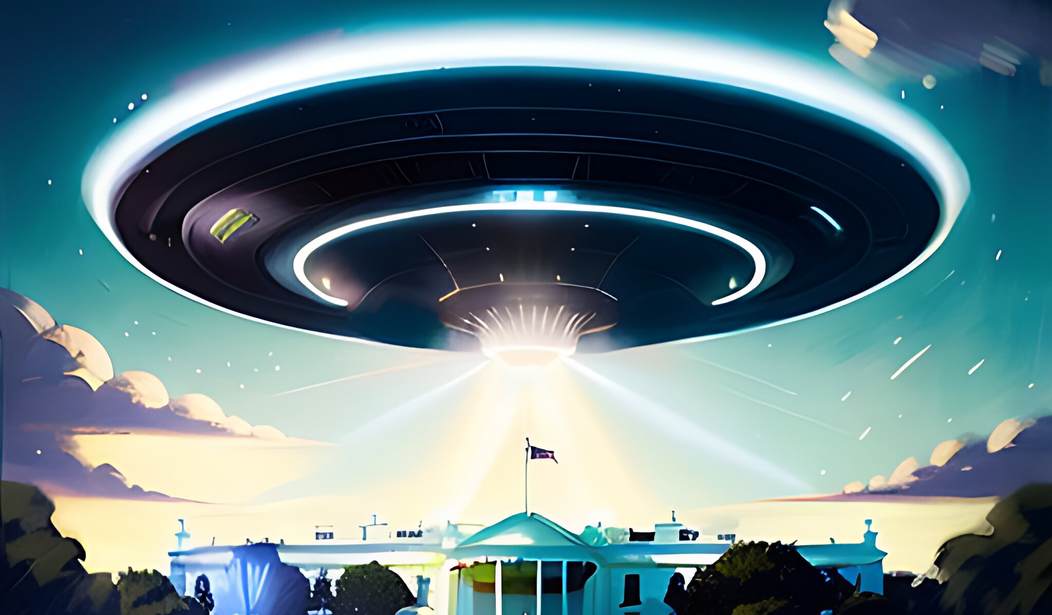“Where is everybody?!”
Although the exact wording of his quote is still hotly disputed, its intent was clear: When Los Alamos scientists Enrico Fermi, Emil Konopinski, Edward Teller, and Herbert York were enjoying lunch during a balmy summer afternoon in 1950, Fermi expressed bewilderment over the lack of extraterrestrial aliens.
After all, space is enormous — exponentially larger than anything you could ever imagine. There are hundreds of billions of galaxies, stars, planets, and moons. The celestial real estate available is gargantuan!
Yet everywhere we’ve ever looked in the skies, we’ve found no evidence of extraterrestrial life. No abandoned alien technology, no bio-signatures of even bacteria (let alone multicellular life), no signs of an alien civilization. Nothing, nada, zero, zilch.
Now, to be fair, the absence of evidence is not necessarily evidence of an absence; the percentage of space we’ve mapped is extraordinarily small. To some scientists, it would be akin to gazing at a bucket of ocean water, and then declaring that there are no whales.
But life is so abundant and diverse here on earth!
It’s lurking in land, in air, and in water. Life exists on every continent. So why isn’t life common throughout the cosmos? Just as Enrico Fermi asked, “Where is everybody?!”
This contradiction is known as the Fermi Paradox.
The paradox remains unanswered, although various theories abound: Perhaps the religious people were right, and this is the only spot in the universe where God allowed life to begin.
There’s also the “Rare Earth hypothesis” that theorizes our planet could be more special than we’re aware: The combination of an unusually large moon to stabilize tides and orbits, a large planet like Jupiter capturing deadly projectiles, and a location in the universe without damaging bombardments of radiation might not occur very often. Perhaps we’re the only planet capable of life.
But there’s also a more sinister explanation called the “Dark Forest hypothesis.” It stipulates that alien civilizations are likely to exist throughout the universe, but they’ve learned to be silent.
Why?
Because, when a hostile alien civilization discovers you, they destroy you.
There’s a short Internet story called “Radio Silence” that describes a scenario where, after decades of broadcasting TV and radio signals throughout space, humanity finally received its first message from the stars. But the message we received was short:
“BE QUIET OR THEY WILL HEAR YOU.”
Which means, maybe the Dark Forest hypothesis is true, but for the exact opposite reason: Maybe WE are the monsters that everyone else fears.
Here on earth, “survival of the fittest” is as fundamental a law as gravity: Every living entity must kill and consume another living entity to survive. And since this is how it is on earth, we assume it must be this way for alien civilizations.
But what if it’s not?
What if life usually evolves in places where the resources are so abundant, competition is unnecessary? So instead, all species cooperate together?
If that’s what’s “normal” in other worlds, imagine how frightening earth must be!
“Have you heard of earth?! It’s awful! Animals kill to survive! It’s in their blood; they can’t even help it; they instinctively crave the taste of meat! Can you imagine anything so disgusting?!”
Additionally, of all the animals on earth, humans are unique — and not just because of our intellect:
We’re the greatest endurance hunters on the planet. Because we’re bipedal and (mostly) hairless, we can chase after animals for days and days without getting tired. Humans keep pursuing until the animal collapses from exhaustion.
To any peace-loving alien, we must be the scariest monsters imaginable!
“Stay away from the humans! They slaughter animals to extinction on their OWN planet, so imagine what they’d do to us! They never get tired, never quit, never stop, and will hunt you until you collapse. And that’s when they’ll EAT you!”
“Two possibilities exist,” posited author Arthur C. Clarke. “Either we are alone in the universe or we are not. Both are equally terrifying.”
But perhaps not as terrifying as we are to them.










Join the conversation as a VIP Member